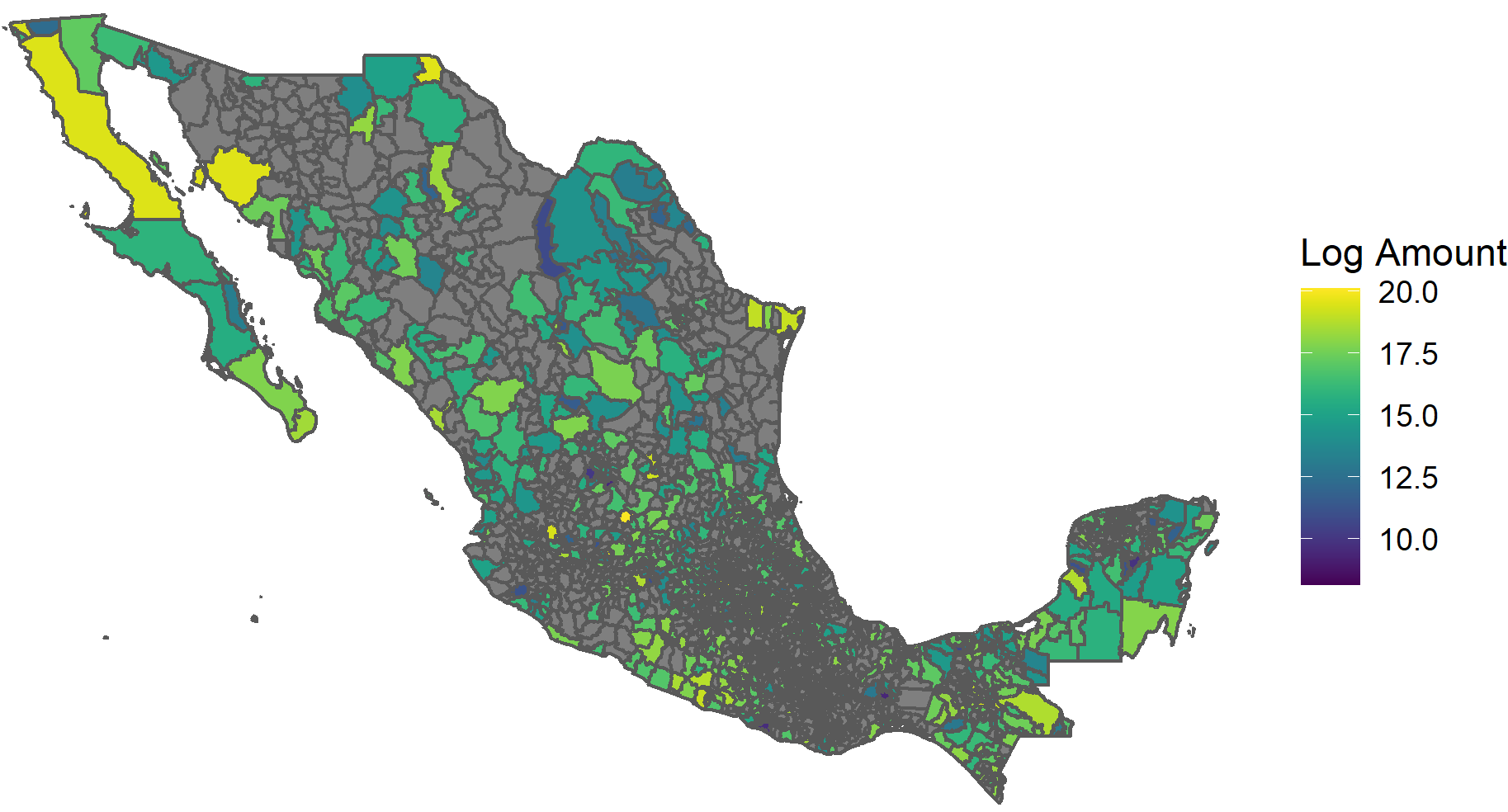Clarity of Responsibility, Corruption, and Voters’ Basic Needs: Evidence from Mexico
Presented at the Midwest Political Science Association (MPSA) conference.
Clarity of responsibility theory suggests that once political parties align/match at higher and lower levels of government, voters can more easily discern who is responsible for corruption, and politicians react accordingly by reducing their corruption levels. By the same token, the same party alignment structures that yield clarity of responsibility also facilitate resource advantages in newer democracies, and many countries have multi-tiered political systems involving local, state, and national levels. To activate programmatic accountability and voter sanctioning of corrupt politicians through clarity of responsibility, I argue that it is first necessary to have high doses of clarity of responsibility and meet voters' most immediate basic needs: freedom from poverty and violence. To provide an empirical test for the argument, I leverage new, objective corruption data from 12 years of Mexican municipal audits reports, and identify the causal effects of full-, partial-, non-alignment through a close-election regression discontinuity design. I find some support that the dosage of clarity of clarity of responsibility matters for reducing corruption, but statistical support for the basic needs hypothesis is mostly inconclusive. The paper contributes to a better understanding of how poverty, violence, and political-institutional configurations interact to produce different levels of corruption in young democracies.

Mean Amount (Log) of Stolen/Misappropriated Money in Constant 2013 Mexican Pesos (2007-2018)
